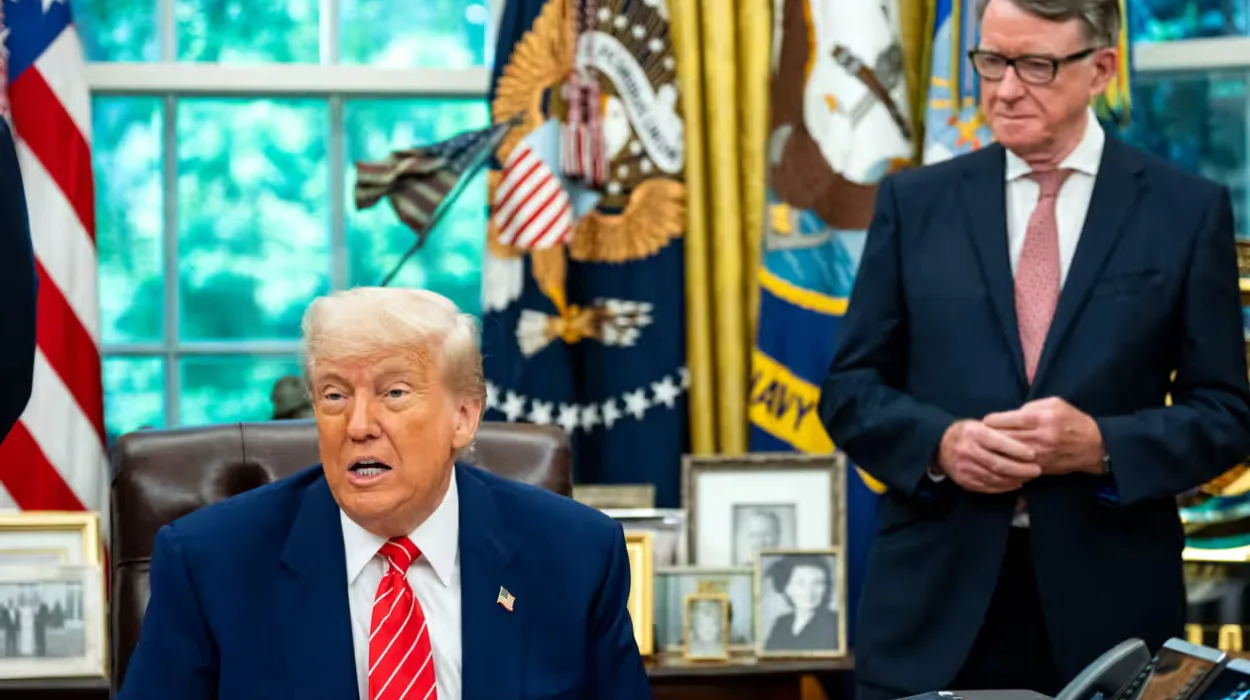UK (Parliament Politics Magazine) – Senior minister Darren Jones insists the UK-US deal is crucial for protecting 150,000 jobs, despite concerns over long-term benefits and ongoing negotiations.
As reported by The Independent, the Chief Secretary to the Treasury emphasized that the trade agreement was essential to protect thousands of jobs, stating it would bring significant benefits to the UK.
What did Darren Jones say about the UK’s trade deal with the US?
Despite criticism suggesting that Britain was in a worse trading situation with the US after Donald Trump’s tariffs, Mr Jones remained determined regarding the necessity of the trade deal.
In response to an inquiry on BBC Breakfast about the urgency of the deal, the Treasury Minister replied, “Yes, it was vital.”
When asked about the potential job losses, Mr Jones said, “Of course, which is why it was so important that we’ve got the deal over the line.”
The minister dismissed claims that the UK’s situation had not improved since the introduction of Donald Trump’s tariffs.
He said,
“If I could rather be in a world where there were no tariffs, of course I would. But that’s just not the world that exists. So it’s not really an option on the table. The option on the table is to have not signed a trade deal with the United States and had higher tariffs, or to have signed a trade deal with the United States and had lower tariffs.”
Mr Jone stated,
“We’ve signed that trade deal. We’ve got lower tariffs in critical manufacturing sectors in the UK. 150,000 people’s livelihoods that we’ve protected as a consequence of that trade deal.”
He added,
“That is, by definition, factually better off as a consequence of the action that this Government is taking to stand up for working people across the UK.”
During his appearance on BBC Radio 4’s Today programme, Mr Jones claimed that the 150,000 figure included not just workers but also their families affected by job losses in the car, steel, and aluminium industries.
What did Andrew Griffith say about the UK-US trade deal?
Shadow Business Secretary Andrew Griffith expressed concerns over the UK-US trade agreement, adding that the benefits of the deal remain “very unclear” in many key areas. His comments follow Conservative leader Kemi Badenoch, who argued that the UK had been “shafted” in the deal.
He said,
“There’s some good elements to yesterday’s deal – I think the car industry and steel industry will welcome at least the reduction. But overall, it’s quite disappointing.”
Mr Griffith added,
“It’s still very unclear what happens to pharmaceuticals, a really big UK industry, there’s nothing on film and TV, and yet (at) the start of the week, the Government was talking about 100% tariffs on that.”
He added,
“I know people along the way were urging me to walk away, to descend in a different kind of relationship. We didn’t. We did the hard yards. We stayed in the room. I’m really pleased to say to the workforce here and through them to the country, how important I think this deal is.”
What did John Denton say about the UK-US deal?
John Denton, Secretary General of the International Chamber of Commerce, stated,
“The reality is that US tariffs on UK exports remain significantly higher than they were at the start of the year.” He said it was still unclear what would happen to industries not explicitly covered by the deal, such as pharmaceuticals.”
UK-US trade deal
Labour leader Keir Starmer praised the deal as a “fantastic, historic day” during his visit to the Solihull Jaguar Land Rover plant. He told workers that the deal had significantly saved thousands of threatened jobs in the steel and car industries.
The agreement was confirmed in a joint announcement by Keir Starmer and Donald Trump, streamed live across both continents on VE Day.
Car and steel industries have received short-term relief under the new deal, though a 10% tariff on most imported goods, part of President Trump’s “Liberation Day” plan, still stands.
The main points of the agreement indicate that both the US and the UK plan to start talks to refine and finalise the proposed terms.

